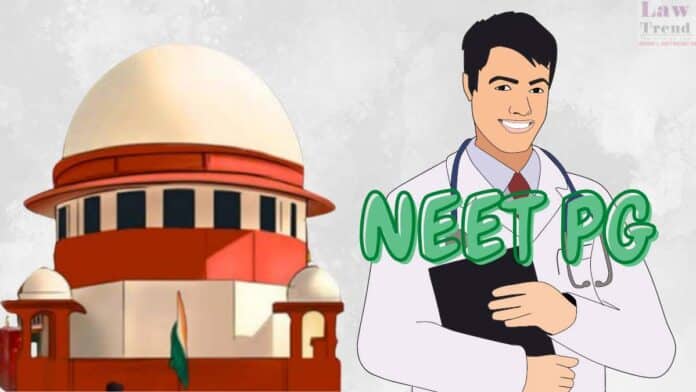New Delhi, May 30: The Supreme Court on Friday refused to allow the National Board of Examinations (NBE) to conduct the NEET-PG 2025 examination in two shifts, citing concerns over fairness and equality among candidates.
A bench comprising Justice Vikram Nath, Justice Sanjay Kumar, and Justice NV Anjaria directed the NBE to identify sufficient examination centres and conduct the NEET-PG exam in a single shift. The Court emphasized that using two different question papers inherently introduces inequity due to unavoidable variations in their difficulty levels.
“Holding the exam in two shifts leads to arbitrariness and cannot give a level playing field. The question papers in the two shifts can never be of the same difficulty level,” the bench observed in its order dated May 30.
The Court posed a rhetorical query during the hearing: “How can it stay the same? There are different question papers. They can never be the same.” The petitioners had submitted that the current system of two-shift exams places greater reliance on “luck” rather than “merit,” undermining the fairness of a high-stakes national test.
Senior Advocate Maninder Acharya, appearing for the NBE, defended the two-shift format by citing infrastructure limitations, lack of access to quality computers, and security concerns. She argued that most major exams with large candidate pools are conducted in multiple shifts, and the Board takes steps to ensure parity through normalisation of scores between shifts.
“After ensuring same difficulty level, normalisation is done to eliminate even a slight difference between difficulty levels,” the NBE counsel submitted.
However, the Supreme Court was not convinced by these justifications. The bench drew attention to the fact that NEET-UG, which has a significantly larger number of candidates, was conducted in a single shift, and yet the NBE was proposing a dual-shift model for NEET-PG.
“Last year it may have been held in two shifts in the facts and circumstances of that stage. But the examining body ought to have considered making arrangements for holding the examination in one shift,” the Court stated.




